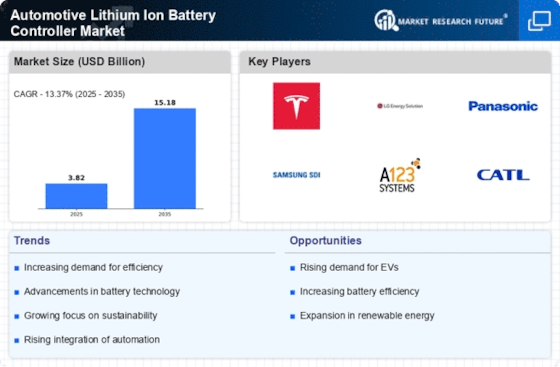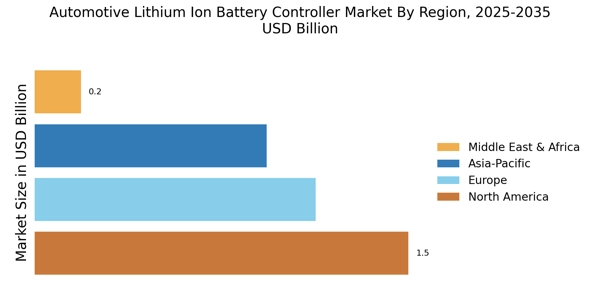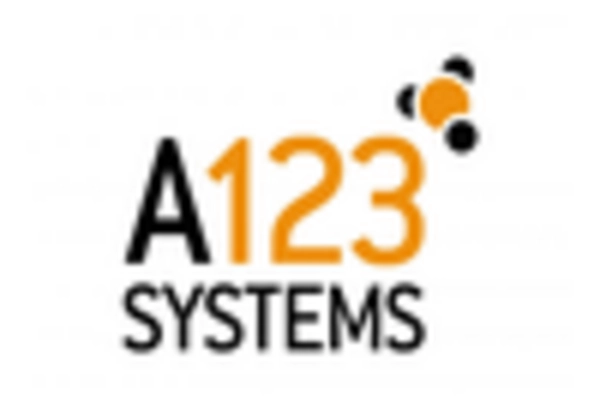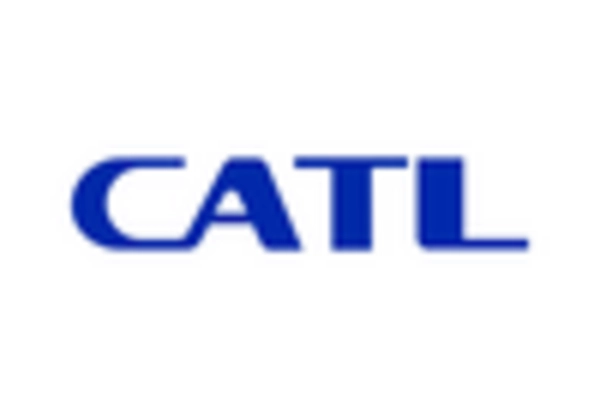Growing Focus on Energy Efficiency
The Automotive Lithium Ion Battery Controller Industry. As consumers and manufacturers alike prioritize sustainability, the demand for battery controllers that optimize energy usage is increasing. In 2025, the market is expected to see a rise in the adoption of controllers that not only enhance battery performance but also contribute to overall vehicle efficiency. This trend aligns with broader sustainability goals, making energy-efficient battery management systems a key component in the evolution of the Automotive Lithium Ion Battery Controller Market.
Rising Demand for Electric Vehicles
The increasing consumer preference for electric vehicles (EVs) is a primary driver for the Automotive Lithium Ion Battery Controller Market. As governments and manufacturers push for greener alternatives to traditional combustion engines, the demand for efficient battery management systems has surged. In 2025, it is estimated that the EV market will account for a substantial percentage of total vehicle sales, necessitating advanced battery controllers to optimize performance and longevity. This trend indicates a robust growth trajectory for the Automotive Lithium Ion Battery Controller Market, as manufacturers seek to enhance the efficiency and reliability of their battery systems to meet consumer expectations.
Expansion of Charging Infrastructure
The expansion of charging infrastructure is a crucial factor influencing the Automotive Lithium Ion Battery Controller Market. As more charging stations become available, the practicality of electric vehicles increases, leading to higher adoption rates. This growth in infrastructure necessitates the development of advanced battery controllers that can efficiently manage charging processes and optimize battery health. By 2025, the proliferation of charging networks is expected to support the growth of the Automotive Lithium Ion Battery Controller Market, as manufacturers respond to the need for reliable and efficient battery management solutions.
Government Regulations and Incentives
Government regulations aimed at reducing carbon emissions are propelling the Automotive Lithium Ion Battery Controller Market. Many countries have implemented stringent emission standards and are offering incentives for electric vehicle adoption. These policies encourage manufacturers to invest in advanced battery technologies, including lithium-ion controllers that enhance energy efficiency and reduce environmental impact. As of 2025, the regulatory landscape continues to evolve, with more countries committing to ambitious targets for EV adoption, thereby creating a favorable environment for the growth of the Automotive Lithium Ion Battery Controller Market.
Technological Advancements in Battery Management Systems
Technological innovations in battery management systems (BMS) are significantly influencing the Automotive Lithium Ion Battery Controller Market. The integration of advanced algorithms and smart technologies allows for better monitoring and control of battery performance, enhancing safety and efficiency. As of 2025, the market is witnessing a shift towards more sophisticated controllers that can manage complex battery configurations and improve energy density. This evolution not only boosts the performance of electric vehicles but also extends battery life, making it a critical factor driving the Automotive Lithium Ion Battery Controller Market forward.

















